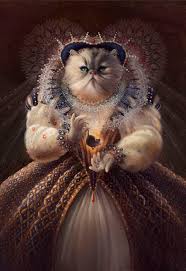 Writers of fiction must create a believable character, no matter the genre. Yet some interesting dilemmas arise when the character is constrained by history, by the future or even by contemporary standards.
Writers of fiction must create a believable character, no matter the genre. Yet some interesting dilemmas arise when the character is constrained by history, by the future or even by contemporary standards.
Writing Tip for Today: How can writers create believable characters, yet still appeal to present-day and future readers? Let’s look at some ideas:
Transport, Don’t Alienate
A fiction writer’s first job is to transport readers into the story and away from the world—if only briefly. Especially with historical fiction, readers demand authenticity as well as a character who relates to the reader in a way that transports to the story realm. I’ve noticed quite a few writers of these genres struggling to balance this need for reader identification with the facts of a historical period. For example, an historical story set in the 1700s might feature a woman as Main Character. Modern readers want a plucky, brave woman who doesn’t meekly obey her paternalistic society. Yet reality was that indeed, many women of that period were limited to cooking, cleaning, child rearing and the occasional cross stitch sampler. How should a writer portray that character to modern readers? My instincts say that although a writer of historical fiction should provide realistic details, these details shouldn’t get in the way of a good story. A writer may say, “Oh but in the 1700s she wouldn’t do that,” but that writer should find a way to allow the character to buck the system in a believable way.
Season with Period Details
One way to achieve this balance is to use period details and dialect in a limited way. Just as readers might stumble in trying to read a thick dialect, they may also become confused or bemused by period details for which they have no reference. If the writer is describing how a task was done in the 1740s, the writer can use known objects or tasks to compare. Just as it’s better to write, “The box was as big as a breadbox,” than “the box measured two and a half feet by twelve inches,” comparisons with known things can help readers understand tasks or objects unknown to modern life. Just as contemporary fiction must use caution with slang that could become dated, historical fiction should choose a few details that help bring the era to life. Learn to sprinkle or season scenes with these period details, so that they add to readers’ experience without stopping them.
We’re All Human—or Not
Even fantasy or sci-fi genres must employ characters who are believable yet readily understood by today’s readers. I think of it as the same way that Hollywood movies about ancient Rome almost always feature centurions with British accents. We couldn’t understand the Romans if they spoke Latin. In the same way, no matter what genre your fiction falls into, create characters that are, above all, very human. In Star Wars and Star Trek, even the aliens have decidedly human emotions. When it comes to character emotions and attitudes, give your characters a Universal Translator to help readers identify with those characters’ emotions. Capture this quest for human emotion, and your character will be unforgettable—even if he’s an alien.





Thank you! This really helps in some areas I’ve been struggling through.
Marla,
I think a lot of fiction writers have this same struggle. Keep thinking: what emotions do I want to bring up in the reader? Writers are managers of the reader–we say: remember this, look at that, ignore the other thing.
Keep Writing,
Linda
Thanks a lot for the post.Really thank you! Much obliged.
James,
I’m so glad my tips are helpful.
Keep Writing!
Linda
The tension between unreliable narrator—as it were—and the inmediate presence of a first-person game doesn’t work for me. They seem at odds. It was good for a few chuckles in Call Of Juarez: Gunslinger. It was put to rather better use in Spec Ops: The Line and I’d be happy to never see another game with a colon in its title. But in Edith Finch, the stories Edie tells (or is it actually Edith telling them?) are all quite fantastical, but made less—“believable” might be the wrong word. Mythical? Believable as myth is what I mean—anyway, less that by virtue of the first-person experience. Like, a legend told to you can be imagined, and can feel real in a similar way that a dream feels real; which is quite unlike how being awake feels real. The first-person setting never makes the leap from the latter into the former for me. Perhaps also it was having to learn a new set of controls for each story that was also contributing to the distance I felt. Whatever it was, Edith Finch left me cold, much as did Ethan Carter before it, which is strangely similar in both structure and theme as well as name!